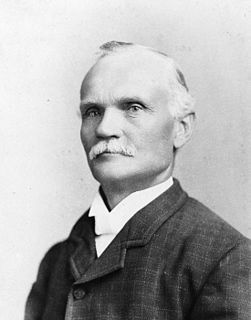A Quote by William Hazlitt
He who is as faithful to his principles as he is to himself is the true partisan.
Related Quotes
For one who feels compelled, as I do, to accept the existence of the Master Architect, it is important to examine his handiwork for the light it throws on him and on his program for his children. For me, there has been no serious difficulty in reconciling the principles of true science with the principles of true religion.
No man could bring himself to reveal his true character, and, above all, his true limitations as a citizen and a Christian, his true meannesses, his true imbecilities, to his friends, or even to his wife. Honest autobiography is therefore a contradiction in terms: the moment a man considers himself, even in petto, he tries to gild and fresco himself. Thus a man's wife, however realistic her view of him, always flatters him in the end, for the worst she sees in him is appreciably better, by the time she sees it, than what is actually there.
A cool blooded and crafty politician, when he would be thoroughly revenged on his enemy, makes the injuries which have been inflicted, not on himself, but on others, the pretext of his attack. He thus engages the world as a partisan in his quarrel, and dignifies his private hate, by giving it the air of disinterested resentment.
There is nothing so bad or so good that you will not find Englishmen doing it; but you will never find an Englishman in the wrong. He does everything on principle. He fights you on patriotic principles; he robs you on business principles; he enslaves you on imperial principles; he bullies you on manly principles; he supports his king on loyal principles and cuts off his king's head on republican principles.
And truly it demands something god like in him who has cast off the common motives of humanity, and has ventured to trust himself for a taskmaster. High be his heart, faithful his will, clear his sight, that he may in good earnest be doctrine, society, law, to himself, that a simple purpose may be to him as strong as iron necessity is to others!
Only to the extent that someone is living out this self transcendence of human existence, is he truly human or does he become his true self. He becomes so, not by concerning himself with his self's actualization, but by forgetting himself and giving himself, overlooking himself and focusing outward.
I met the real George Steinbrenner on only one occasion when he actually came and played himself on an episode of 'Seinfeld.' He seemed to really enjoy himself. I did not get to know him, but the fact that he allowed himself and his beloved team to be satirized on our show is an indication to me of his true character.



































